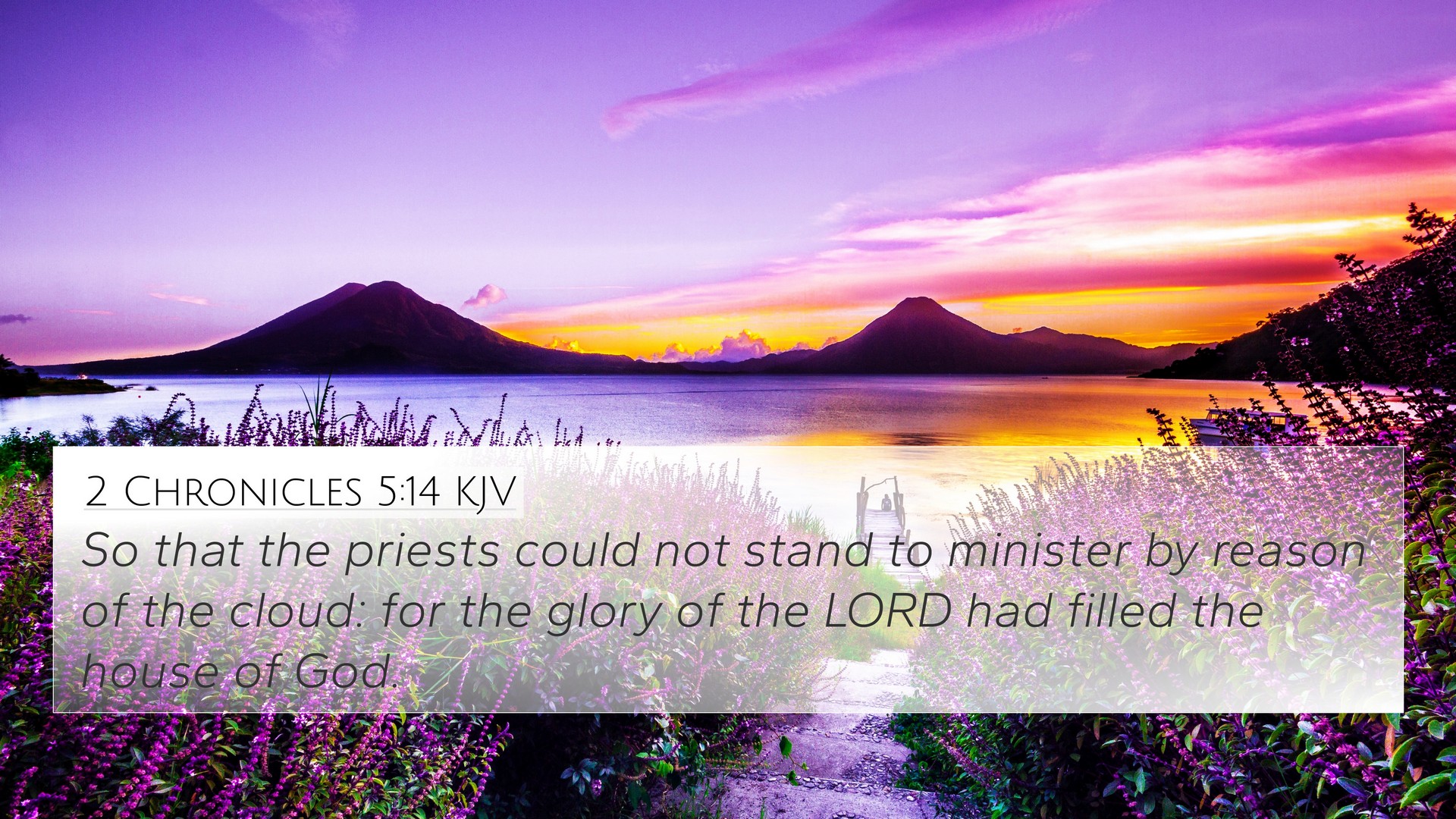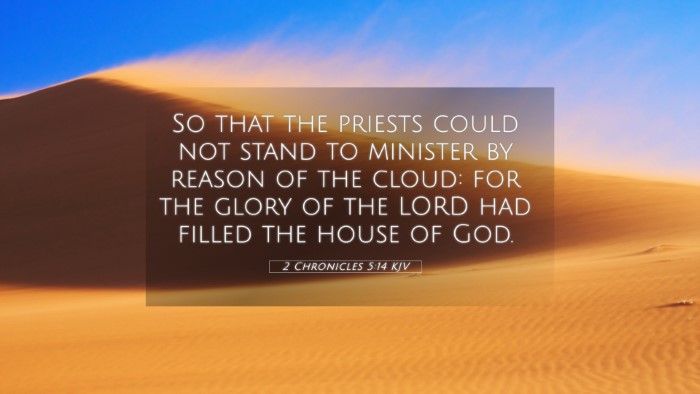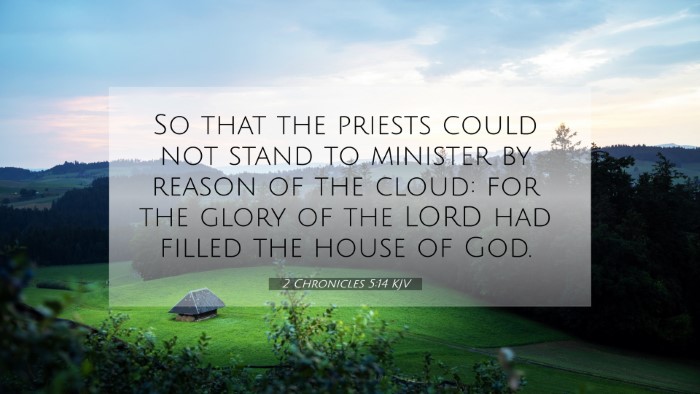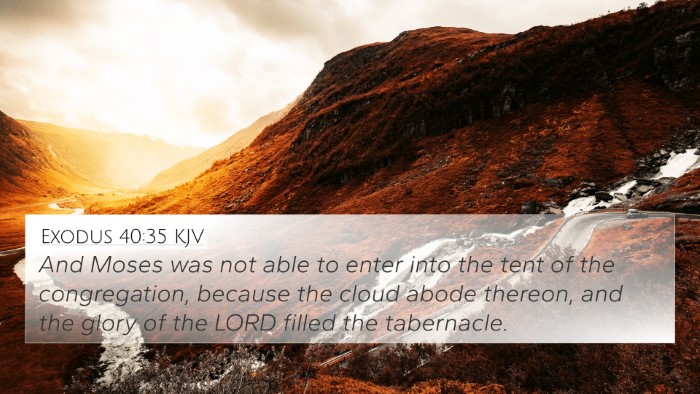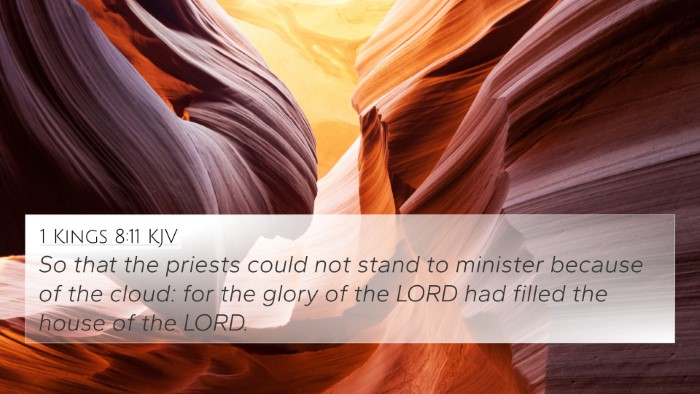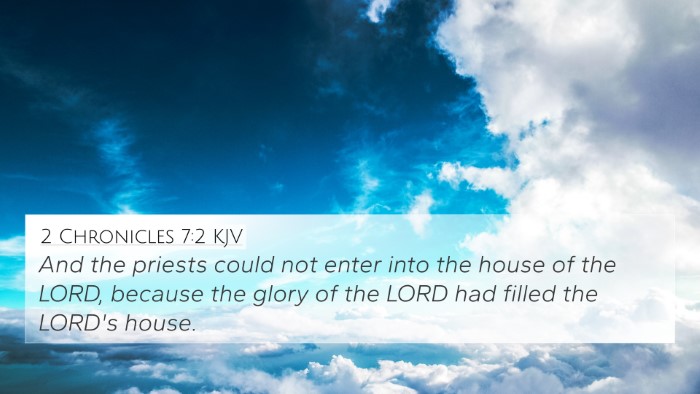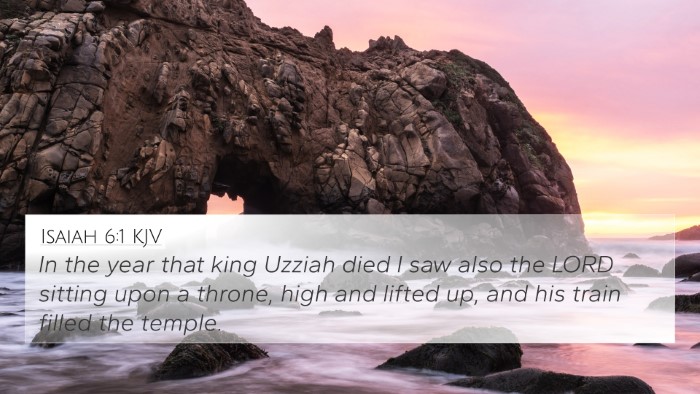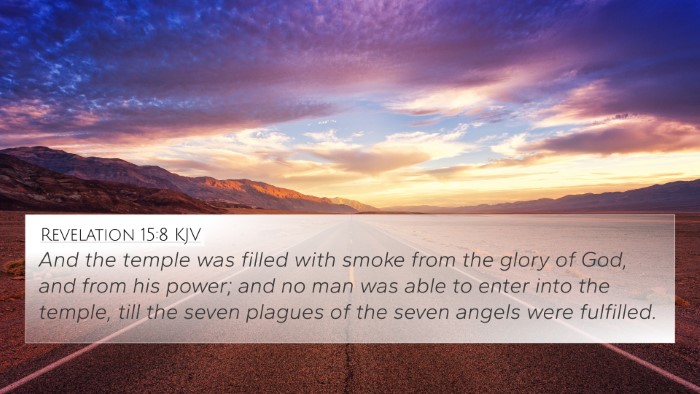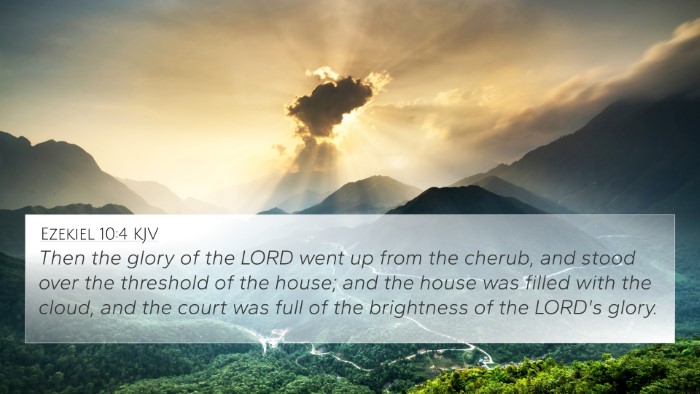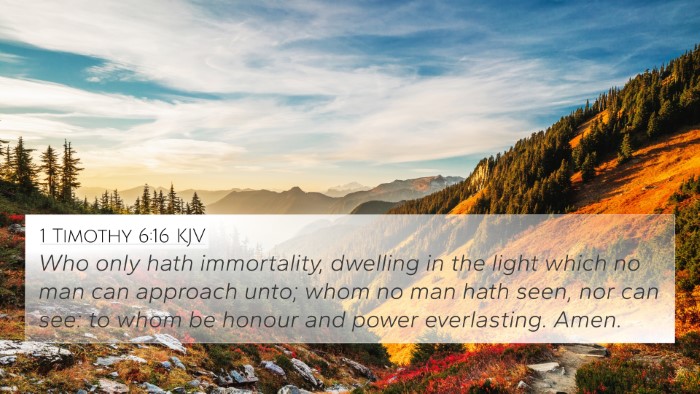Bible Verse Interpretation: 2 Chronicles 5:14
The verse 2 Chronicles 5:14 states:
"So that the priests could not stand to minister because of the cloud: for the glory of the LORD had filled the house of God."
This significant verse encapsulates the overwhelming presence of God’s glory in the temple, highlighting several key themes regarding divine presence, worship, and the sanctity of the temple. Here, we will explore the insights provided by notable public domain commentaries, integrating their perspectives for a comprehensive understanding of this verse.
Meaning and Context
2 Chronicles 5:14 describes a moment during the dedication of Solomon's Temple when the priests are unable to perform their duties due to the extraordinary manifestation of God’s glory, represented by a massive cloud. This experience emphasizes God's approval of the temple as His dwelling place and underscores the importance of reverence in worship.
Matthew Henry notes that this cloud symbolizes the divine presence, drawing parallels to God's appearances in the past, particularly during the exodus. This moment signifies that divine approval has been granted to Solomon's Temple. Henry emphasizes that the purity and excellence of worship are essential to experience such divine glory.
Commentary Insights
-
Matthew Henry:
Henry draws attention to the reasons for such a powerful manifestation, explaining that it demonstrates God's acceptance of Solomon's offerings. He points out that this occurrence serves as a reminder of the holiness required in worship as the priests were unable to continue their duties in the face of God’s manifest presence.
-
Albert Barnes:
Barnes highlights the permanence of God’s glory within the temple. He explains that the overwhelming presence of God signifies the establishment of a holy space designated for worship and communion with God, reflecting on how God desires to be known and worshiped by His people.
-
Adam Clarke:
Clarke elaborates on the implications of the priests being unable to stand, suggesting it illustrates the profound effect of divine glory on human capabilities and functions within the temple. He emphasizes the need for humility in the presence of the Almighty.
Theological Significance
This verse not only bears historical significance but also theological dimensions. It teaches about God's holiness and the necessity of our reverent approach to Him. The inability of the priests to minister reflects the awe invoked by divine glory, and serves as a precursor to the New Testament understanding of worship, as brought forth through Christ.
Bible Verse Cross-References
Several cross-references provide deeper insights into the themes presented in 2 Chronicles 5:14:
- Exodus 40:34-35 - Discusses God's glory filling the tabernacle.
- 1 Kings 8:10-11 - Describes a similar event when the temple is filled with a cloud.
- Isaiah 6:1-4 - Refers to the glory of God in a vision of the Lord in His temple.
- Revelation 15:8 - Speaks of the temple being filled with smoke from God’s glory and power.
- Hebrews 9:1-5 - Mentions the earthly sanctuary and its significance.
- Psalm 29:9 - Describes the Lord’s voice making the hinds to calve and stripping the forests bare, showcasing His majestic power.
- 2 Corinthians 5:1 - Discusses our heavenly dwelling, relating to divine presence.
Applications for Modern Worship
The implications of 2 Chronicles 5:14 are significant for contemporary worship practices. It encourages believers to approach God with reverence, recognizing His holiness and the power of His presence. This verse can inspire a deeper appreciation for the moments of worship where God’s presence is felt profoundly.
Thematic Connections
This verse connects to broader themes throughout Scripture, including:
- The Presence of God: Investigating how God desires to be present among His people, seen in Exodus and the New Testament.
- Worship in Spirit and Truth: Aligning contemporary worship time with the biblical understanding of God's holiness and our response to it.
- The Holiness of God: A consistent theme across both Testaments calling for our holy living in response to God.
Conclusion
In conclusion, 2 Chronicles 5:14 serves as a powerful testament to the character of God as holy and deserving of reverence. Through a rich interplay of commentaries and scriptural references, the overwhelming nature of God's glory is emphasized, beckoning believers to foster a spirit of humility and awe in their worship practices. Engaging with the connections between this verse and others enhances understanding of God's timeless nature and His desire for a relationship with humanity.
Resources for Further Study
For those interested in deepening their understanding of biblical texts through cross-referencing, various tools can be utilized:
- Bible Concordance for identifying themes.
- Bible Cross-Reference Guide for detailed analysis.
- Cross-Reference Bible study methods for structured exploration of interconnected scriptures.
